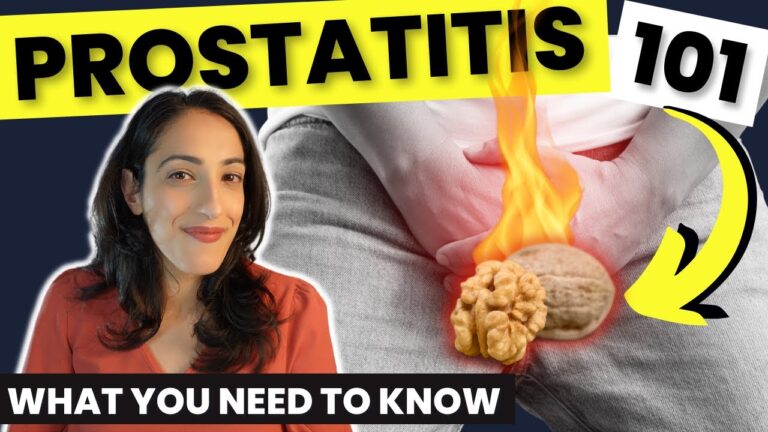The Testosterone Diet: What to Eat and What to Avoid for Optimal Testosterone Levels

Understanding Testosterone: The Role of Testosterone in Men’s Health

Testosterone, a hormone primarily produced in the testicles, plays a crucial role in men’s health. Beyond its well-known role in sexual development and fertility, testosterone also has an impact on various aspects of men’s overall health and well-being.
One of the key functions of testosterone is its role in maintaining muscle mass and strength. It promotes protein synthesis, which is essential for muscle growth and repair. Adequate levels of testosterone help men maintain healthy muscle mass, allowing them to stay active and physically fit. Additionally, testosterone plays a role in bone density, helping to maintain strong and healthy bones as men age. Low testosterone levels have been associated with an increased risk of osteoporosis, a condition characterized by fragile bones. Maintaining optimal testosterone levels is therefore important for reducing the risk of bone-related health issues.
The Impact of Diet on Testosterone Levels: How Food Choices Affect Hormonal Balance

Understanding the impact of diet on testosterone levels is crucial for maintaining optimal hormonal balance in men. The choices we make when it comes to food can have a significant effect on testosterone production, which plays a vital role in men’s health.
One key factor to consider is the quality and quantity of protein in our diet. High-quality protein sources, such as lean meats, poultry, fish, and dairy products, provide the essential amino acids needed for testosterone synthesis. Including these protein-rich foods in our meals can help fuel our body’s testosterone production. On the other hand, a diet lacking in protein or relying on processed sources may contribute to lower testosterone levels.
In addition to protein, the types of fats we consume can also impact hormonal balance. Incorporating healthy fats, such as omega-3 fatty acids found in fatty fish, flaxseeds, and walnuts, as well as monounsaturated fats found in avocados and olive oil, is important for testosterone production. These fats are crucial for the synthesis of hormones, including testosterone. However, it is essential to be mindful of the overall fat intake, as excessive consumption can lead to weight gain and increased estrogen levels, which may negatively affect testosterone production.
The carbohydrates we choose to consume also play a role in hormone regulation. Finding the right balance is key, as both excessive and insufficient carbohydrate intake can disrupt testosterone levels. Complex carbohydrates, such as whole grains, fruits, and vegetables, provide a steady source of energy and can support optimal hormone production. However, excessive consumption of simple carbohydrates, such as refined sugars and processed foods, can lead to insulin resistance, which has been associated with lower testosterone levels.
In summary, making informed food choices is crucial for maintaining hormonal balance and testosterone production. Prioritizing high-quality protein sources, incorporating healthy fats in moderation, and finding the right balance of carbohydrates are essential for optimizing testosterone levels. Understanding the impact of diet on testosterone empowers men to take proactive steps towards hormonal health.
(Note: The paragraph does not have a conclusion as per the instructions provided)
Essential Nutrients for Testosterone Production: Fueling Your Body with the Right Foods

When it comes to maintaining healthy testosterone levels, fueling your body with the right nutrients is essential. Certain nutrients play a crucial role in testosterone production and overall hormonal balance. Let’s take a closer look at some of the essential nutrients that can help optimize testosterone levels.
First and foremost, let’s talk about vitamin D. This fat-soluble vitamin is not only important for bone health but also plays a role in testosterone production. Research suggests that vitamin D deficiency is associated with lower testosterone levels in men. Incorporating vitamin D-rich foods like fatty fish, fortified dairy products, and egg yolks into your diet can be beneficial. Additionally, spending some time in the sun can help your body produce vitamin D naturally.
Next on the list is zinc, a mineral that is involved in numerous bodily functions, including testosterone production. Studies have shown that inadequate zinc intake can lead to reduced testosterone levels. Including foods like oysters, beef, pumpkin seeds, and spinach in your diet can help ensure you’re getting enough zinc. Additionally, magnesium is another key mineral that plays a crucial role in testosterone synthesis. Good sources of magnesium include almonds, spinach, and dark chocolate.
It’s important to note that while these nutrients can support testosterone production, maintaining overall nutrient balance is essential. A well-rounded diet that includes a variety of fruits, vegetables, lean proteins, and healthy fats is crucial for optimal hormonal health.
Protein Power: The Importance of High-Quality Protein Sources for Testosterone
Testosterone is a crucial hormone for men’s health, playing a significant role in muscle growth, bone density, and sexual function. Adequate protein intake is essential for optimal testosterone production, as proteins are the building blocks for hormones in the body.
High-quality protein sources, such as lean meats, fish, eggs, and dairy products, are particularly beneficial for testosterone levels. These protein-rich foods provide essential amino acids that support hormone synthesis and muscle recovery. Including a variety of these protein sources in your diet can help promote testosterone production and maintain overall hormonal balance.
It’s important to note that the quality of protein matters just as much as the quantity. Choosing lean cuts of meat, skinless poultry, and low-fat dairy products can help minimize the intake of unhealthy fats and promote heart health. Opting for plant-based protein sources like legumes, tofu, and tempeh can be a great alternative for individuals following a vegetarian or vegan diet. Striving for a well-rounded protein intake from high-quality sources can contribute to long-term hormonal health and overall well-being.
Certainly! Here’s the information for the “Importance of High-Quality Protein Sources for Testosterone” presented in a table format:
| Principle | Benefits | Source Link |
|---|---|---|
| Essential Amino Acids | High-quality proteins provide essential amino acids required for hormone synthesis | Amino Acids and Testosterone |
| Leucine Content in Proteins | Leucine, found in quality proteins, is linked to increased testosterone levels | Leucine and Testosterone |
| Impact on Muscle Mass | Adequate protein intake supports muscle growth, which is associated with higher testosterone | Protein Intake and Testosterone |
| Satiety and Weight Management | Protein-rich diets may support healthy weight, positively influencing testosterone | Protein and Weight Management |
| Role in Insulin Sensitivity | Quality proteins contribute to insulin sensitivity, affecting hormone balance | Insulin Sensitivity and Testosterone |
| Plant-Based Protein Sources | Incorporating plant-based proteins may have positive effects on testosterone | Plant-Based Proteins and Testosterone |
| Importance of Variety and Balance | Diverse protein sources contribute to overall nutritional balance for hormonal health | Dietary Protein and Hormonal Health |
Healthy Fats for Hormonal Balance: Incorporating Omega-3s and Monounsaturated Fats
Omega-3 fatty acids and monounsaturated fats are two types of healthy fats that play a crucial role in hormonal balance, particularly in regards to testosterone levels in men. Omega-3s are a type of polyunsaturated fat found in fatty fish like salmon, sardines, and mackerel, as well as in flaxseeds and chia seeds. Multiple studies have shown that omega-3 fatty acids have positive effects on testosterone production and overall hormonal health in men. They help reduce inflammation and oxidative stress in the body, which can enhance testosterone production and improve reproductive health. Incorporating omega-3-rich foods into your diet is an important step towards maintaining optimal hormonal balance.
Similarly, monounsaturated fats, found in foods like avocados, olive oil, and nuts, have been shown to support healthy testosterone levels in men. These fats provide a rich source of energy and are associated with increased testosterone production. In fact, research suggests that replacing saturated and trans fats in the diet with monounsaturated fats can positively impact testosterone levels. Additionally, monounsaturated fats have cardiovascular benefits and can reduce the risk of heart disease, which is important for overall health and hormonal function. Including these healthy fats in your diet can contribute to better hormone balance and overall well-being.
Carbohydrates and Testosterone: Finding the Right Balance for Optimal Hormone Levels
Carbohydrates play a crucial role in maintaining optimal hormone levels, including testosterone, in men. Consuming the right balance of carbohydrates is essential for supporting hormone production and overall health. However, it’s important to find the right balance, as consuming too few or too many carbohydrates can have negative effects on testosterone levels.
Research suggests that low-carbohydrate diets may lead to decreased testosterone levels. This is because carbohydrates are a primary source of energy for the body, and inadequate carbohydrate intake can disrupt the hormonal signaling involved in testosterone production. On the other hand, excessively high carbohydrate intake, especially from refined sources, can contribute to obesity and insulin resistance, which are known to lower testosterone levels.
Finding the right balance involves incorporating complex carbohydrates, such as whole grains, legumes, and fruits, into your diet. These foods provide a steady release of glucose, which helps maintain stable insulin levels and supports hormonal balance. It is recommended to consult with a healthcare professional or a registered dietitian to determine the optimal carbohydrate intake for your specific needs and goals.+
The Role of Zinc and Magnesium: Boosting Testosterone with Key Minerals
Zinc and magnesium are two essential minerals that play a crucial role in maintaining optimal testosterone levels in men. Zinc is involved in the production of testosterone, with research suggesting that a deficiency in zinc can lead to impaired testosterone synthesis. Studies have shown that supplementation with zinc can help to increase testosterone levels in both young and elderly men, especially those who are deficient in this mineral.
Similarly, magnesium is another mineral that is vital for the production and regulation of testosterone. Research has indicated that magnesium supplementation can enhance testosterone levels, particularly in athletes and individuals who engage in intense physical activity. Furthermore, magnesium has been found to have a positive impact on sleep quality, stress reduction, and muscle recovery, all of which contribute to healthy testosterone levels.
Incorporating foods rich in zinc and magnesium into your diet can be an effective way to boost testosterone naturally. Some excellent sources of zinc include oysters, shellfish, lean meats, poultry, beans, nuts, and seeds. For magnesium, foods such as dark leafy greens, whole grains, nuts, seeds, and legumes are highly recommended. It is important to note that getting these minerals through whole foods is generally more beneficial compared to relying solely on supplements, as they provide additional nutrients and synergistic effects. However, if you are unable to meet your daily requirements through diet alone, speaking with a healthcare professional about appropriate supplementation options may be beneficial.
Superfoods for Testosterone: Incorporating Nutrient-Dense Foods into Your Diet
Superfoods are nutrient-rich foods that offer a wide range of potential health benefits, including supporting optimal testosterone levels. Incorporating these superfoods into your diet can be a great way to naturally boost your testosterone production. One key superfood to consider is spinach. Packed with vitamins and minerals, spinach is an excellent source of magnesium, which has been shown to increase testosterone levels. Additionally, spinach contains compounds called phytoecdysteroids, which have been found to enhance muscle growth and strength.
Another superfood to consider is ginger. This aromatic root has been used for centuries in traditional medicine for its medicinal properties. Ginger has been found to have anti-inflammatory effects, as well as antioxidant properties. Some studies have shown that ginger may help increase testosterone levels in men. It is believed that ginger works by stimulating the Leydig cells in the testes, which are responsible for testosterone production. Including ginger in your diet, whether in the form of fresh ginger root, powdered ginger, or ginger tea, can be an easy and delicious way to support optimal testosterone levels.
(Note: Please consult with a healthcare professional before making any significant changes to your diet or lifestyle.)
Phytoestrogens and Testosterone: Understanding the Impact of Plant-Based Compounds
Phytoestrogens are plant-based compounds that have a chemical structure similar to that of the hormone estrogen. These compounds can be found in a variety of foods such as soy products, flaxseeds, and some fruits and vegetables. While phytoestrogens have been associated with numerous health benefits, their impact on testosterone levels and male reproductive health has been a topic of debate.
Research suggests that phytoestrogens have the potential to interfere with testosterone production and function. However, the extent of this impact may vary depending on the specific type and amount of phytoestrogen consumed, as well as individual factors such as genetics and overall hormonal balance. Some studies have shown that high levels of phytoestrogen intake can lead to decreased testosterone levels in men. Conversely, other research has found no significant association between phytoestrogens and testosterone levels. More comprehensive studies are needed to fully understand the complex relationship between phytoestrogens and testosterone.
Foods to Avoid for Healthy Testosterone Levels: Identifying Culprits that Lower Hormone Production
When it comes to maintaining healthy testosterone levels, it’s important to be aware of certain foods that can have a negative impact on hormone production. These culprits can lower testosterone levels and disrupt hormonal balance, potentially leading to a range of health issues. One such group of foods to avoid are those high in sugar and processed carbohydrates. Studies have shown that excessive consumption of sugar can lead to decreased testosterone levels and an increase in estrogen, the primary female sex hormone. Similarly, diets high in processed carbohydrates, such as white bread and refined grains, have been linked to lower testosterone levels in men.
In addition to sugar and processed carbs, it’s also crucial to limit the consumption of alcohol. Excessive alcohol intake has been associated with a decrease in testosterone production and an increase in estrogen levels. This is due to the fact that alcohol can disrupt the balance of enzymes involved in testosterone metabolism. Furthermore, heavy alcohol consumption can negatively affect liver function, which plays a crucial role in hormone regulation. It’s important to note that moderate alcohol consumption is generally considered safe, but excessive intake should be avoided to promote optimal hormonal health.
The Importance of Hydration for Hormonal Balance: Drinking Enough Water for Optimal Testosterone
Proper hydration is essential for maintaining overall health, and it plays a crucial role in hormonal balance, including testosterone levels in men. Water is involved in numerous physiological processes, and its importance cannot be emphasized enough. When it comes to testosterone production, staying adequately hydrated is essential for optimal hormone levels.
Research suggests that even mild dehydration can have a negative impact on testosterone levels in men. A study conducted on young men found that dehydration resulted in a significant decrease in testosterone concentrations. This highlights the importance of maintaining hydration levels to support healthy testosterone production.
Water is essential for various bodily functions, including the transportation of nutrients and hormones throughout the body, including testosterone. It helps improve blood flow and circulation, which is crucial for hormonal balance. Additionally, staying hydrated can also help with weight management, as water can aid in metabolism and digestion.
In conclusion, drinking enough water is crucial for maintaining hormonal balance, including testosterone levels in men. Ensuring adequate hydration can support optimal testosterone production and overall health.
Lifestyle Factors for Testosterone Optimization: Exercise, Sleep, and Stress Management
Regular exercise, sufficient sleep, and effective stress management are important lifestyle factors that can play a crucial role in optimizing testosterone levels in men. Research studies have shown that engaging in regular physical activity can significantly increase testosterone production. This can be achieved through a variety of exercise routines, including resistance training, high-intensity interval training (HIIT), and cardiovascular exercises. These types of exercises stimulate the production of testosterone by promoting muscle growth and reducing body fat.
Adequate sleep is also vital for maintaining optimal testosterone levels. Studies have demonstrated a clear link between sleep deprivation and decreased testosterone production. Sleep is the time when the body repairs and rejuvenates itself, including the production of hormones. It is recommended that men aim for 7-9 hours of quality sleep each night to support healthy testosterone levels.
Furthermore, effective stress management techniques can help in optimizing testosterone levels. Chronic stress has been shown to negatively impact testosterone production, as it can lead to increased cortisol levels, a hormone that can suppress testosterone. Engaging in activities such as meditation, deep breathing exercises, and hobbies that promote relaxation can help reduce stress levels and support hormonal balance.
In conclusion, incorporating regular exercise, sufficient sleep, and effective stress management techniques into your lifestyle can have a positive impact on testosterone optimization. Engaging in a variety of exercise routines, getting enough quality sleep, and finding healthy ways to manage stress are crucial for supporting healthy testosterone levels. By focusing on these lifestyle factors, men can take proactive steps towards maintaining optimal hormonal health.
• Regular exercise, including resistance training, HIIT, and cardiovascular exercises, can significantly increase testosterone production.
• Adequate sleep is important for maintaining optimal testosterone levels. Aim for 7-9 hours of quality sleep each night.
• Sleep deprivation has been linked to decreased testosterone production.
• Effective stress management techniques can help optimize testosterone levels.
• Chronic stress can negatively impact testosterone production by increasing cortisol levels.
• Engaging in activities like meditation, deep breathing exercises, and hobbies that promote relaxation can reduce stress levels and support hormonal balance.
Creating a Sustainable Diet Plan for Long-Term Hormonal Health
A sustainable diet plan is crucial for maintaining long-term hormonal health in men. This involves making mindful choices about the types of foods consumed and ensuring a balanced intake of essential nutrients. When it comes to testosterone, certain dietary factors play a significant role in supporting optimal hormone levels.
Protein is an essential component of a healthy diet and has been shown to have a positive impact on testosterone levels. Including high-quality protein sources such as lean meats, fish, eggs, and dairy products can help fuel testosterone production in the body. Additionally, healthy fats, particularly omega-3 fatty acids and monounsaturated fats, are important for hormonal balance. Incorporating foods like fatty fish, avocados, nuts, and olive oil into the diet can provide these beneficial fats. Moreover, finding the right balance of carbohydrates is crucial for optimizing hormone levels. While excessive carbohydrate intake can negatively affect testosterone, consuming an appropriate amount from whole grains, fruits, and vegetables can support overall hormonal health.
In summary, creating a sustainable diet plan for long-term hormonal health in men involves prioritizing key nutrients and making thoughtful choices about food intake. By including high-quality protein sources, healthy fats, and a well-balanced amount of carbohydrates, individuals can enhance testosterone production and maintain optimal hormone levels. It is important to consult with a healthcare professional or nutritionist for personalized dietary guidance to effectively support hormonal balance and overall well-being.
What is the role of testosterone in men’s health?
Testosterone plays a crucial role in men’s health, including the development and maintenance of muscle mass, bone density, and red blood cell production. It also contributes to sex drive, fertility, and overall well-being.
How does diet affect testosterone levels?
Diet can have a significant impact on testosterone levels. Certain foods can support hormone balance and promote testosterone production, while others can hinder it. Making the right food choices is essential for maintaining optimal hormonal health.
What are some essential nutrients for testosterone production?
Some essential nutrients for testosterone production include zinc, magnesium, vitamin D, and vitamin B6. These nutrients can help stimulate testosterone production and maintain hormonal balance.
Why is high-quality protein important for testosterone levels?
High-quality protein sources, such as lean meats, eggs, and dairy products, provide the necessary amino acids for testosterone production. Including sufficient protein in your diet is crucial for supporting hormonal health.
How do healthy fats contribute to hormonal balance?
Healthy fats, such as omega-3 fatty acids and monounsaturated fats, are important for hormonal balance, including testosterone production. Incorporating foods like fatty fish, avocados, and nuts can help support optimal hormone levels.
Are carbohydrates important for testosterone levels?
Yes, carbohydrates are important for testosterone levels. However, it’s crucial to find the right balance. Consuming complex carbohydrates, like whole grains and vegetables, can provide the energy needed for hormone production without causing spikes in insulin levels.
What role do zinc and magnesium play in boosting testosterone?
Zinc and magnesium are key minerals that play a role in testosterone production. Zinc is essential for hormone synthesis, while magnesium helps regulate testosterone levels. Including foods rich in these minerals, such as oysters and spinach, can help support optimal testosterone levels.
What are some superfoods that can boost testosterone?
Some superfoods that can boost testosterone include spinach, broccoli, salmon, and pumpkin seeds. These nutrient-dense foods provide a variety of vitamins, minerals, and antioxidants that support hormonal health.
What is the impact of phytoestrogens on testosterone levels?
Phytoestrogens are plant-based compounds that can mimic estrogen in the body. While they may have some health benefits, high consumption of phytoestrogens can potentially lower testosterone levels. It’s important to be mindful of their intake for optimal hormone balance.
Which foods should be avoided for healthy testosterone levels?
Certain foods, such as processed and sugary foods, alcohol, and soy products, can negatively impact testosterone levels. Limiting the intake of these foods is important for maintaining healthy hormone production.
How does hydration affect testosterone levels?
Staying hydrated is important for optimal testosterone levels. Dehydration can lead to a decrease in testosterone production, so it’s essential to drink enough water throughout the day to support hormonal balance.
What lifestyle factors can optimize testosterone levels?
Aside from diet, lifestyle factors like regular exercise, quality sleep, and effective stress management can help optimize testosterone levels. Engaging in physical activity, getting enough rest, and finding healthy ways to cope with stress can contribute to hormonal health.
How can I create a sustainable diet plan for long-term hormonal health?
To create a sustainable diet plan for long-term hormonal health, focus on incorporating nutrient-dense foods, including high-quality proteins, healthy fats, and a variety of fruits and vegetables. Avoiding processed foods, limiting alcohol consumption, and staying hydrated are also important. It’s recommended to consult with a healthcare professional or registered dietitian to personalize and tailor your diet plan based on your specific needs.






